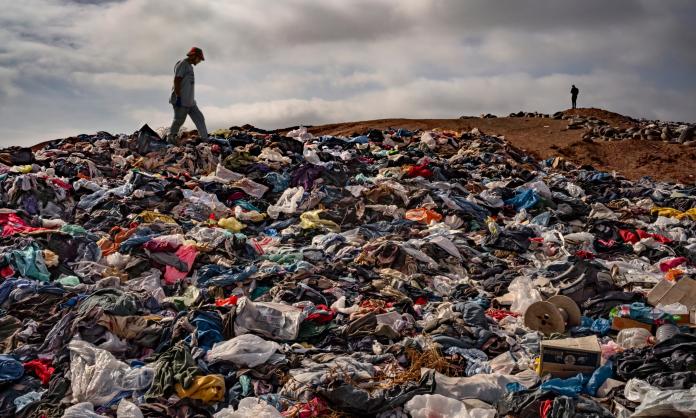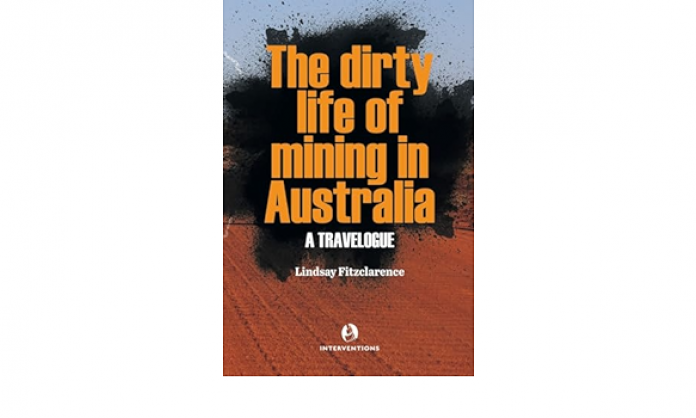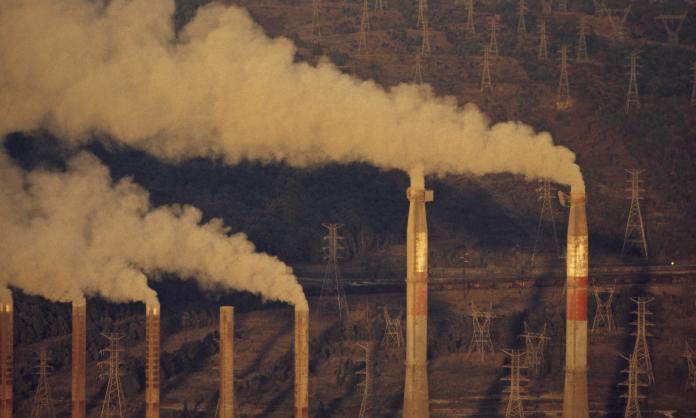Marxist theorist Frederic Jameson once wrote: “It’s easier to imagine the end of the world than the end of capitalism”. Perhaps that’s never been truer than it is today. But if we don’t start not only imagining, but also fighting for, the end of capitalism, the Earth faces a desolate future.
Capitalism has proven itself incompatible with environmental sustainability. Everywhere, the growth and development of the system has brought the destruction of the environment on an ever increasing scale. Where sustainability measures have been implemented, they have been like sticking your thumb into a hole in a crumbling dam wall.
Defenders of capitalism often say there is no alternative. Environmentalists have mostly accepted this. They’ve channelled their budgets and energies towards lobbying politicians and big business – attempting, in the words of journalist Naomi Klein, “to make the square peg of the climate crisis fit into the round hole of deregulated capitalism”.
We can no longer harbour such illusions. The mainstream environment movement has failed. There have been small victories here or there – but the overall picture is bleak. Whether it’s greenhouse gas emissions, the rate of extinctions, deforestation, the levels of pollution of land, air and water, or any other measure, our situation is rapidly worsening.
Big business and its political servants are unwilling to accept anything but the most superficial changes to the current set-up. Any proposal that might threaten profits – whether it’s more stringent environmental regulations or increased taxes to help fund sustainability measures – are rejected out of hand.
In Australia, as in most other Western countries, this is bipartisan policy. The Labor Party may not be prepared to openly flaunt its credentials as a friend of the fossil fuel barons in the same way as the Liberals, but behind the scenes it’s working just as hard to advance their interests.
In capitalism, cash rules. Coal is Australia’s largest export earner, bringing in $66.2 billion last year. Australia is the world’s “king of coal”, Australian exports comprising a massive 36 percent of the global trade. Neither of the major parties is prepared to break with this. In fact, they’ve been prepared to go to extreme measures to defend it.
New laws targeting environmental protesters are being introduced by governments in Australia and many other countries. In extreme cases – such as the inspiring Native American-led resistance to the construction of a new oil pipeline at Standing Rock in 2017 – resistance has been broken by the direct, brutal intervention of police and the military.
We need to use our power
We can’t rely on those in power to lead the change. We have to mobilise the power of our side – through mass action on the streets, and, ultimately, through revolution – to transform our society and rapidly shift to sustainability.
This may sound utopian. But confronted with the existential threat posed by environmental destruction, combined with the complete failure of capitalism to offer a way forward, it’s the only option available: “Be realistic, demand the impossible!”, as the slogan from the May 1968 mass uprising in France put it.
Socialism is a society in which the people who do all the work get to decide what they produce, how they produce and how the products of society will be distributed. A society run by workers – a socialist society – could rapidly unwind the damage done to the planet under the rule of capital. No longer would the guiding principle of all economic decisions be profit. No longer would investors, businesses and countries be locked in an endless competitive scramble to maximise “their” slice of the pie.
The guiding principle of socialism is solidarity – the idea that no-one should be left behind, and that all should work together to maximise the freedoms of each. Not “freedom” in the negative sense of absence of any constraint, but the positive freedom that comes from realising one’s potential in community with others.
Clearly, working for freedom in the latter sense involves working for sustainability. There’ll be little chance of realising any potential in the dystopian world of ecological collapse towards which we’re being propelled. A healthy environment, which can provide both physical and spiritual nourishment, is an essential prerequisite for living a decent life.
A program for reviving the planet
A socialist society could rapidly transition to a zero emissions economy. The first step would be to rapidly shut down the fossil fuel industry. There should be no controversy in this – given the destructive role it’s played, the industry should be seen in the same light as organised crime.
The second step would be an emergency mobilisation – focusing all available resources on refitting the economy for sustainability. The wealth and assets amassed by the likes of Gina Rinehart and Clive Palmer, along with the trillions that the super-rich are estimated to have stashed away in tax havens, could be drawn on for funding.
A flexible, distributed energy system could be built centred on a network of small scale local generators comprising a mix of renewable sources with the latest battery storage technology. Local generation would increase community control over energy, reduce transmission costs and allow for close calibration of energy production with local needs.
In Australia alone, hundreds of thousands of new “green” jobs would be created. These could be filled first by re-skilling workers employed in the fossil fuel and related industries and training the unemployed. Over time, as green industries continue to expand, workers from other areas that will likely become superfluous – such as financial speculation, corporate law, advertising and so on – could be redeployed.
With this transformation of energy supply taking place, there could be a rapid push to reduce household demand for oil and petrol. The first thing to do would be to invest in public transport. Train and tram networks could be expanded way beyond their current reach – with the frequency, speed and quality of service massively increased.
Over time, this investment would pay for itself. Millions of cars could be taken off the roads, resulting in less time spent stuck in traffic, less stress for commuters, a reduction in noise and air pollution and so on. Even capitalist economists recognise this would dramatically reduce the number of “wasted” hours that millions of people spend in traffic gridlock each day.
The built environment could also, over time, be transformed. New buildings would be constructed according to the highest standards of energy efficiency. Existing buildings and homes could be retrofitted with proper insulation and double-glazed windows.
In the longer term, cities could be reshaped entirely – shifting away from the model of an endlessly sprawling, atomised suburbia into a more communal way of living. Centres of economic activity could be more dispersed, reducing the time that people have to spend getting to and from work.
Living spaces could be more integrated with parkland, urban agriculture and areas of communal recreation. Storm water could be harvested and treated for re-use, in part naturally by running it through urban wetlands.
Other environmental challenges could be similarly dealt with under socialism. Take the exponential rise in the volume of plastic and other waste our society produces – much of which pollutes our rivers and oceans.
A state of the art recycling system would be a first step. But the main priority would be to eliminate unnecessary packaging altogether. There’s no reason, other than the desire to maximise profits, that the manufacturers and distributors of commonly consumed items like soft drinks, bottled water, milk and cereal couldn’t massively reduce the amount of “single use” packaging for their products.
In a socialist society we could return to the model that prevailed before companies such as Coca-Cola imposed the “throwaway” mentality we see today: that of products with packaging (in the case of soft drinks – glass) that can be returned for cleaning and re-use.
Another area requiring major changes is agriculture. Under capitalism, the land is pillaged – deforested, deprived of nutrients, polluted with toxic chemicals – for short term profits. A socialist society would draw on the most up to date science to build a more efficient, productive and sustainable system of agriculture.
This would include things such as using plantation timber rather than logging old-growth forests, rationalising the use of irrigation to increase flows into our river systems, and finding alternatives to chemical herbicides and pesticides, which are thought to be associated with the rapid decline in insect numbers, among other issues.
Combined with an increase in urban agriculture, there’s no reason current levels of production couldn’t be maintained with a significant drop in environmental impact. And the consumption levels of the vast majority of people on the planet could be increased with a change in the way food is distributed. The world produces 1.5 times the amount required to feed everyone on the planet – but around a third of that is wasted. Much of this is simply dumped by farmers, supermarkets or restaurants because it can’t be sold at a profit.
Besides this, we would also undertake a large scale clean-up to reverse some of the damage that’s already been done. This could include reforestation, expanding parks and wildlife sanctuaries to rehabilitate ecosystems, removing plastic from the oceans and, if we can get the technology right, removing carbon dioxide from the atmosphere.
Many measures discussed above are things that scientists and other experts have been talking about for decades. They’ll never be implemented on anywhere near a wide enough scale, however, while our economy and society continues to be ruled by a super-rich minority concerned above all with maintaining an economic status quo that continues to bring them untold wealth.
Wouldn’t the transition to sustainability described above be disruptive? Of course. But we have to ask why we should be so concerned about disrupting the status quo when by sticking with it we’re inviting the disruption of humanity’s continued existence.
Wouldn’t it be expensive? Yes, in the short term it would require a massive investment, amounting to tens of trillions of dollars globally. But this is purely a question of priorities. The world’s governments spend US$1.7 trillion every year on the military. Trillions more are poured into areas that are practically useless – such as luxury goods, mansions, yachts and private jets for the super-rich.
A socialist society would have no need for these things. Society’s financial and productive resources could be mobilised to fight climate change and other environmental challenges in a similar manner to how capitalist governments around the world have mobilised their societies in times of war.
These periods in history are commonly regarded as heroic. Ordinary life was disrupted, sacrifices were made, people suffered – but it was all justified for the higher aim of winning the war.
Our challenge today is not to replicate the phoney “heroism” of capitalism caught in the violent frenzy of imperialist war, but to find a new heroism in our collective struggle to build a world free of the system’s destructiveness and violence. We must not only imagine socialism, but work towards its implementation.











